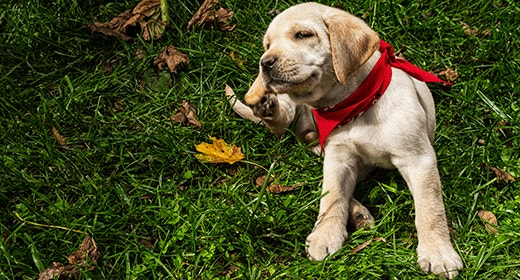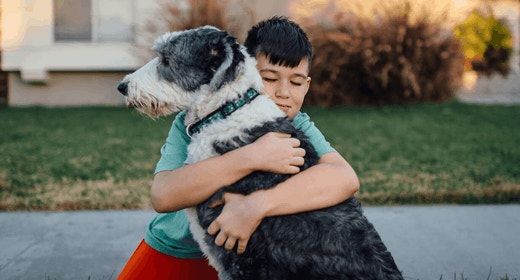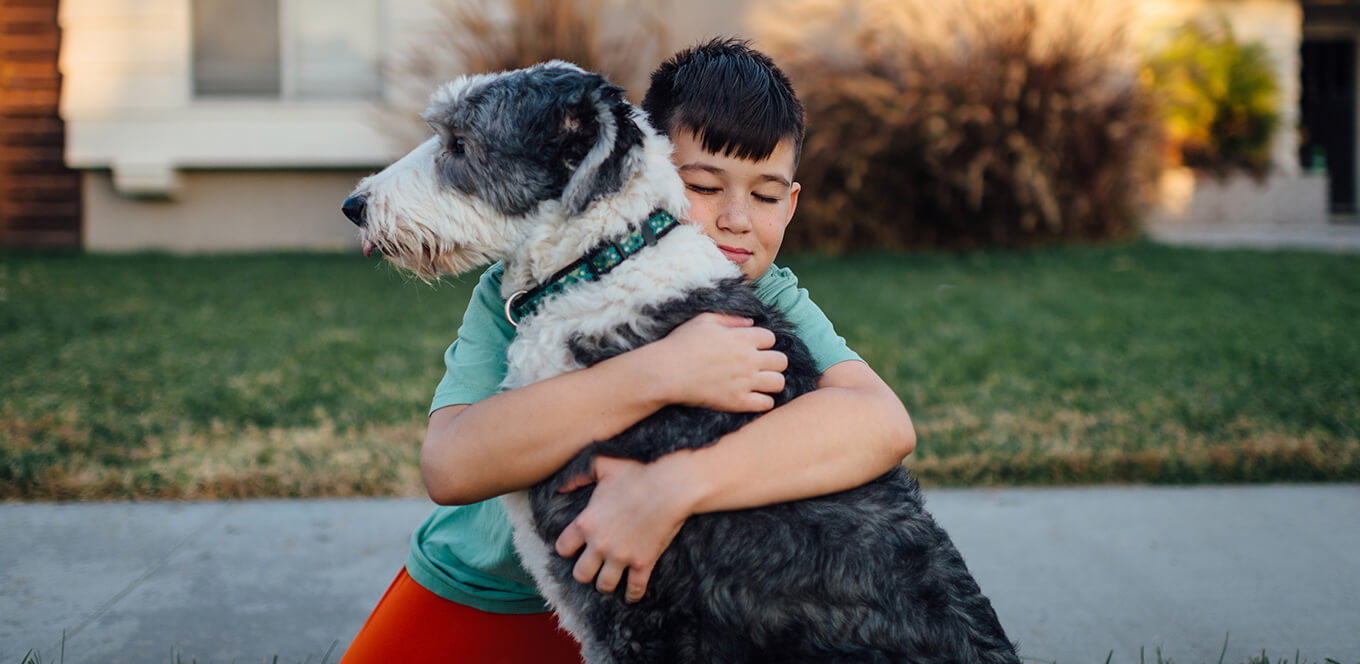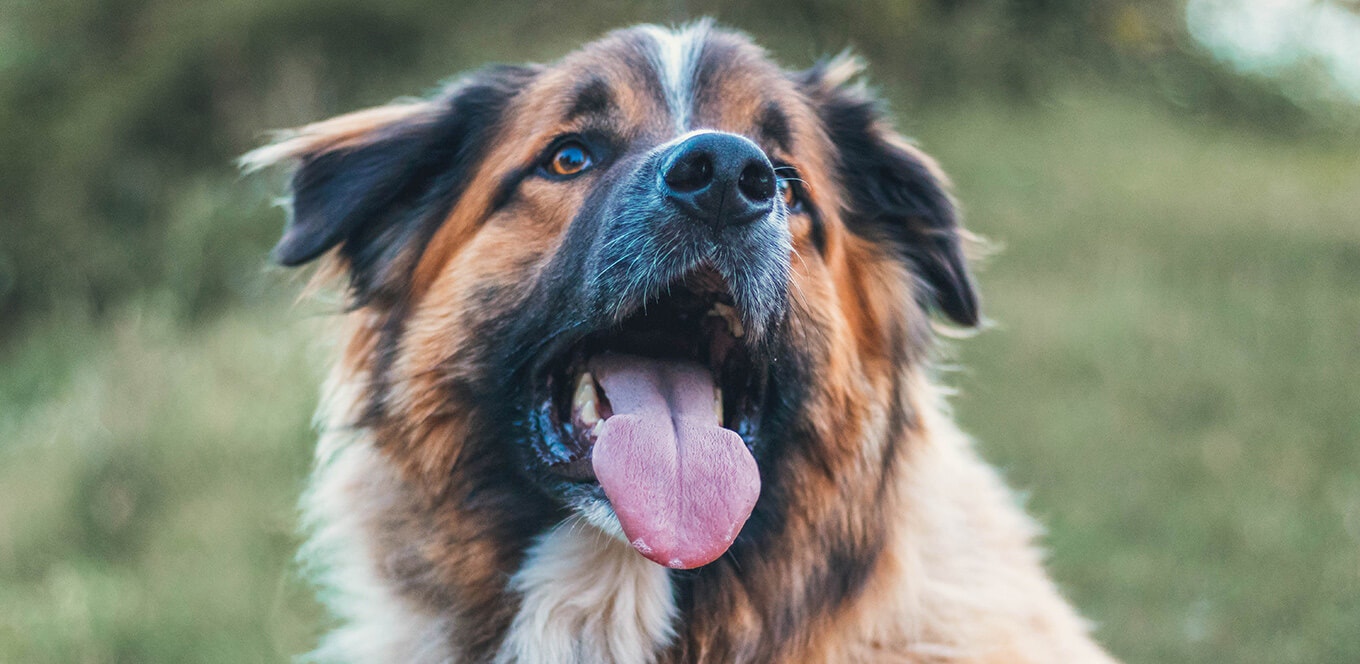

You do everything you can to keep your new puppy happy, and having fleas is definitely not a happy time. Keep these tips in mind to keep your puppy healthy, happy, and flea-free.
The common flea not only causes your dog discomfort, but it can also transmit disease, pass on tapeworms, and cause anemia, especially in vulnerable puppies and older dogs. Regularly inspect your dog for any signs of fleas. Intermittent scratching, biting, and gnawing, plus evidence of flea dirt between your dog's back legs or on top of his rump, are telltale signs of fleas. If your dog is constantly biting and gnawing himself or you can actually see fleas, you've got a full-blown infestation. To check out your dog for fleas, have him stand in a bathtub and vigorously rub your hands through his fur. If little dark dots fall on the tub floor, they're likely either fleas or flea 'dirt' (excrement). You'll know you've got fleas if the 'dirt' turns red when you add a drop of water.
These products work by preventing fleas from biting or reproducing. They are the flea control methods of choice, and when used faithfully as directed, help pet owners avoid many dog health issues associated with fleas.


Healthy joints and proper weight are especially important for dogs that grow to be more than 50 pounds. But not all large- and giant-breed adult dogs have the same nutritional needs. Is your dog getting proper exercise? Is she about to have puppies? Special conditions can dramatically affect your dog’s nutritional demands. Giving her a food specially formulated for her large size, life stage and activity level is the easiest way to make sure she’s getting the nutrients she needs.
To address the special needs of your large- or giant-breed dog, look for these features:
These components are key to good nutrition. Look for them in treats, wet dog food, or dry dog food, such as IAMS™ ProActive Health™ Adult Large Breed.
Joint health is a big concern for owners of large- and giant-breed dogs. A large- or giant-breed formula that contains high-quality protein can help nourish healthy joints. Vitamins and minerals help promote the production of cartilage. Also, keeping your dog at a healthy weight will help minimize joint stress.
Dogs with lower activity levels and dogs that have been neutered or spayed are all prone to weight gain. Controlling your dog’s weight is an important step toward protecting against the health effects of excess weight, such as diabetes or joint health problems. If you use a weight-management food, look for these characteristics:
Pregnant dogs have substantial nutrition requirements. Starting in the seventh week of her pregnancy, a mother dog will need to increase her energy intake up to 50% by the time she gives birth and increase it even more when she starts nursing her puppies. Because she may lose her appetite at times, it's important that she eats a nutrient-dense food. A complete, balanced puppy formula can give her the extra nutrients she needs. But avoid puppy food created for large and giant breeds; these formulas contain specially adjusted levels of energy and minerals that may not be sufficient for a pregnant or nursing dog.
Dogs who grow to be more than 50 pounds are considered mature or senior at age 5 or 6, which is earlier than small-breed dogs. So, it’s critical to make a proactive transition to a specially formulated mature diet, such as IAMS™ ProActive Health™ Mature Adult Large Breed, to help keep your dog healthy and active as she ages.

